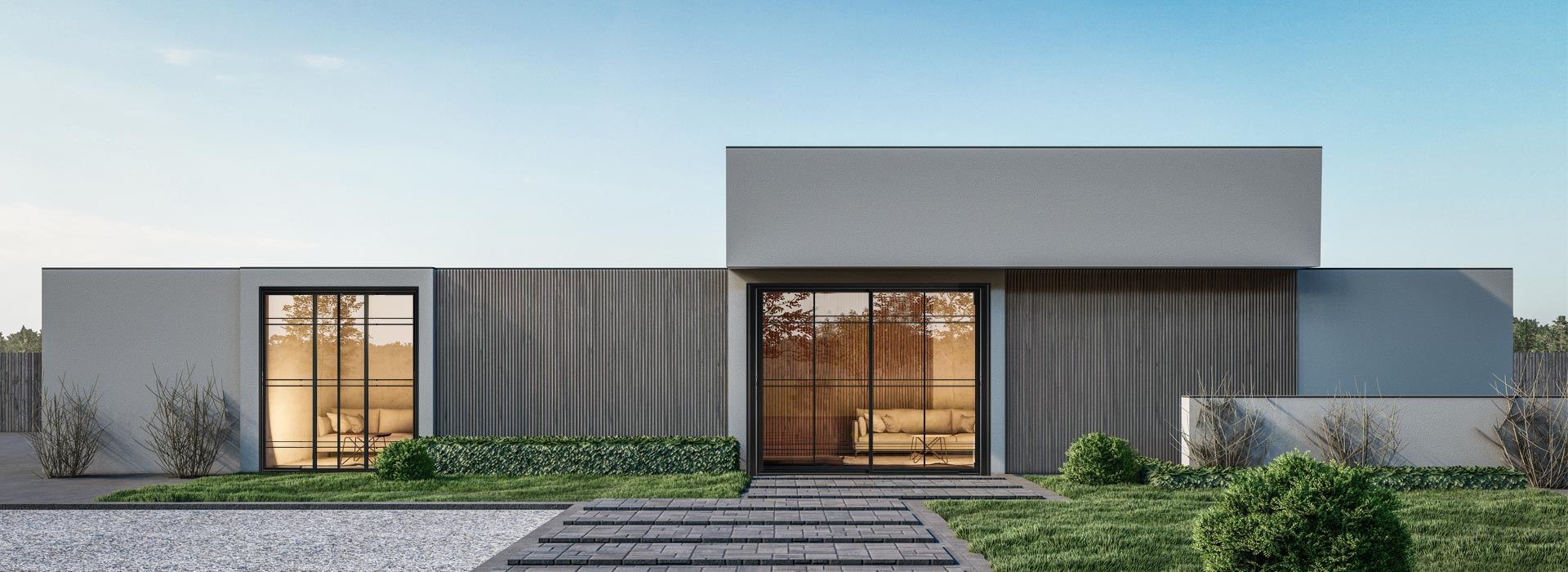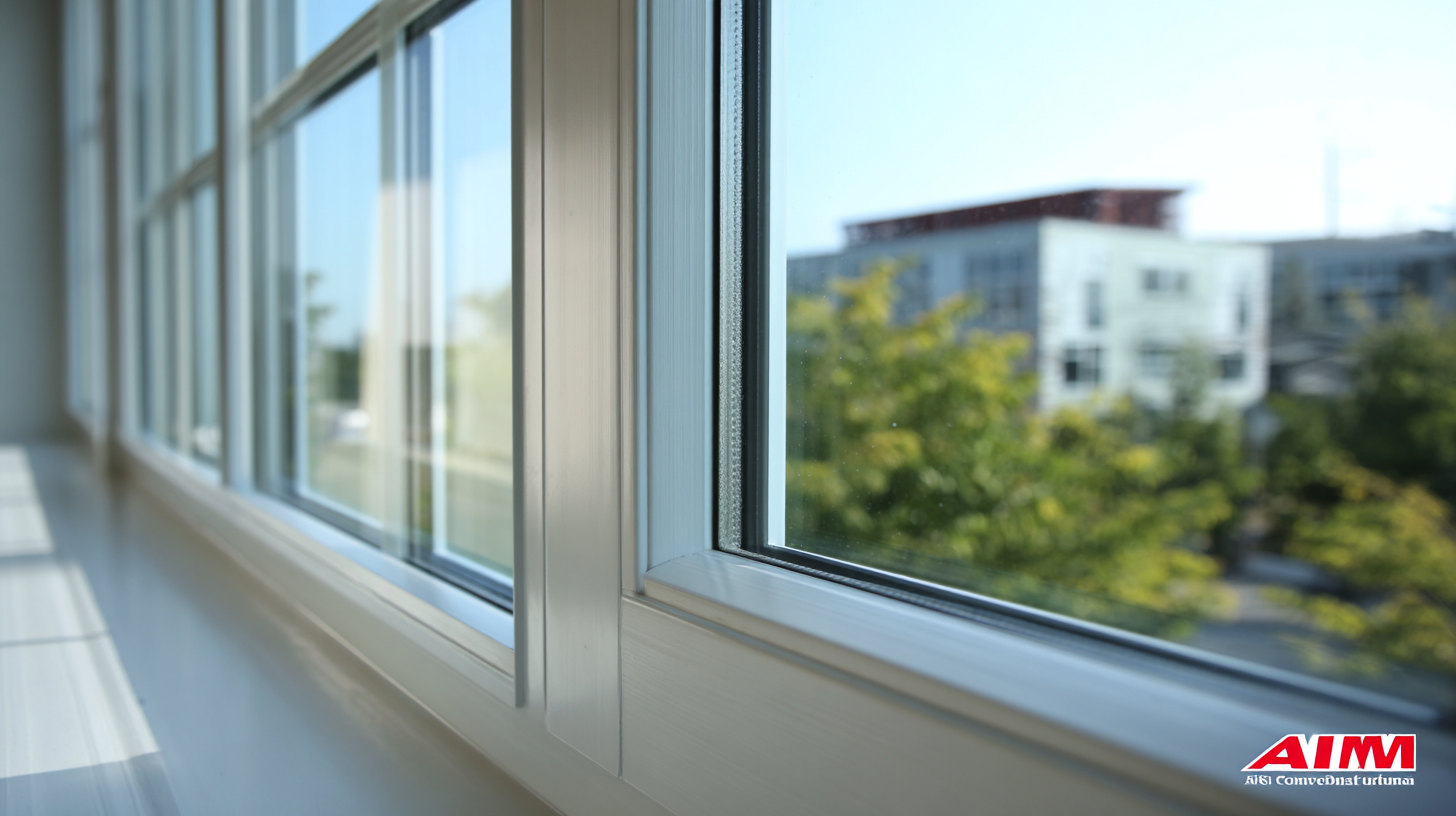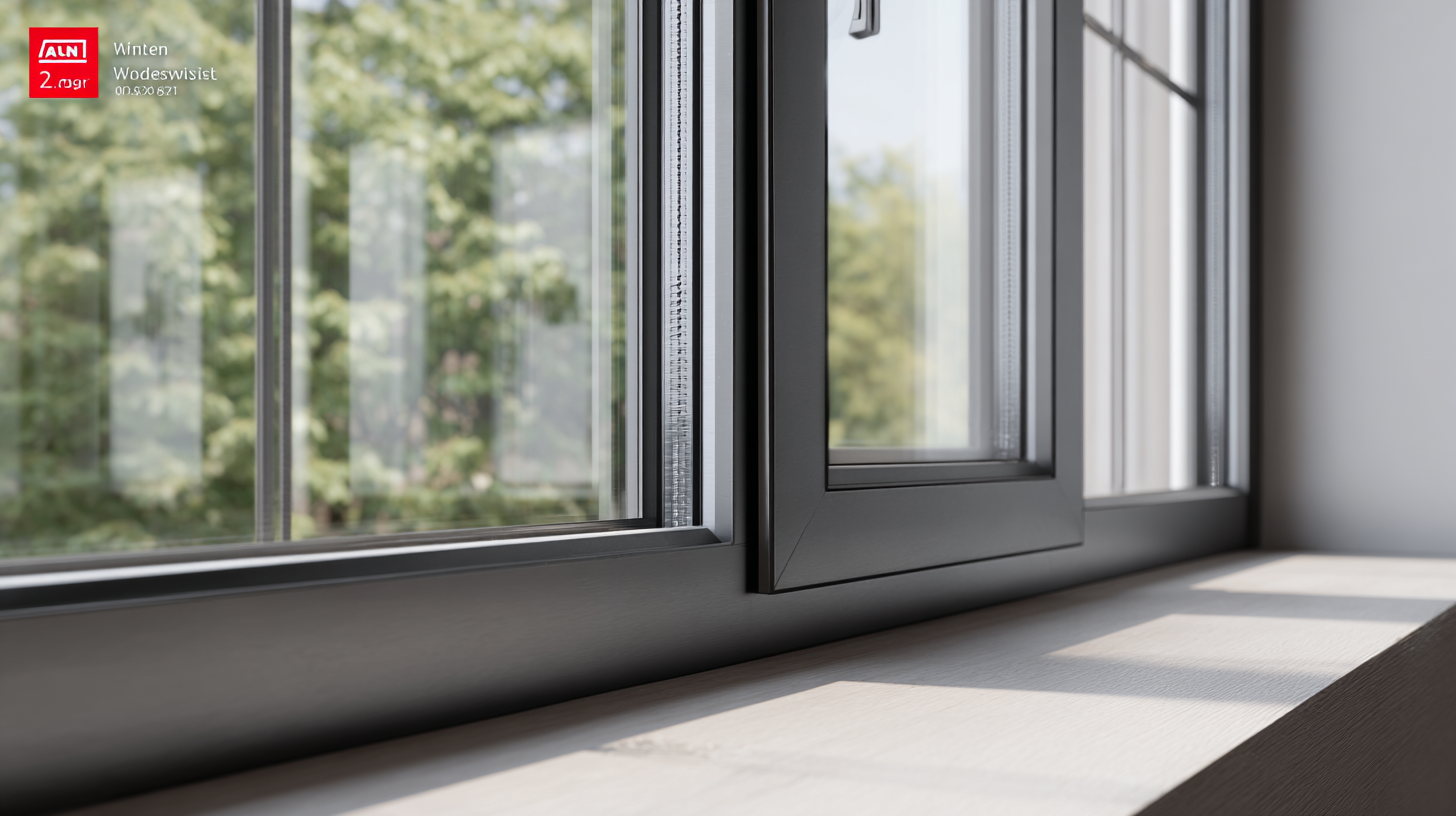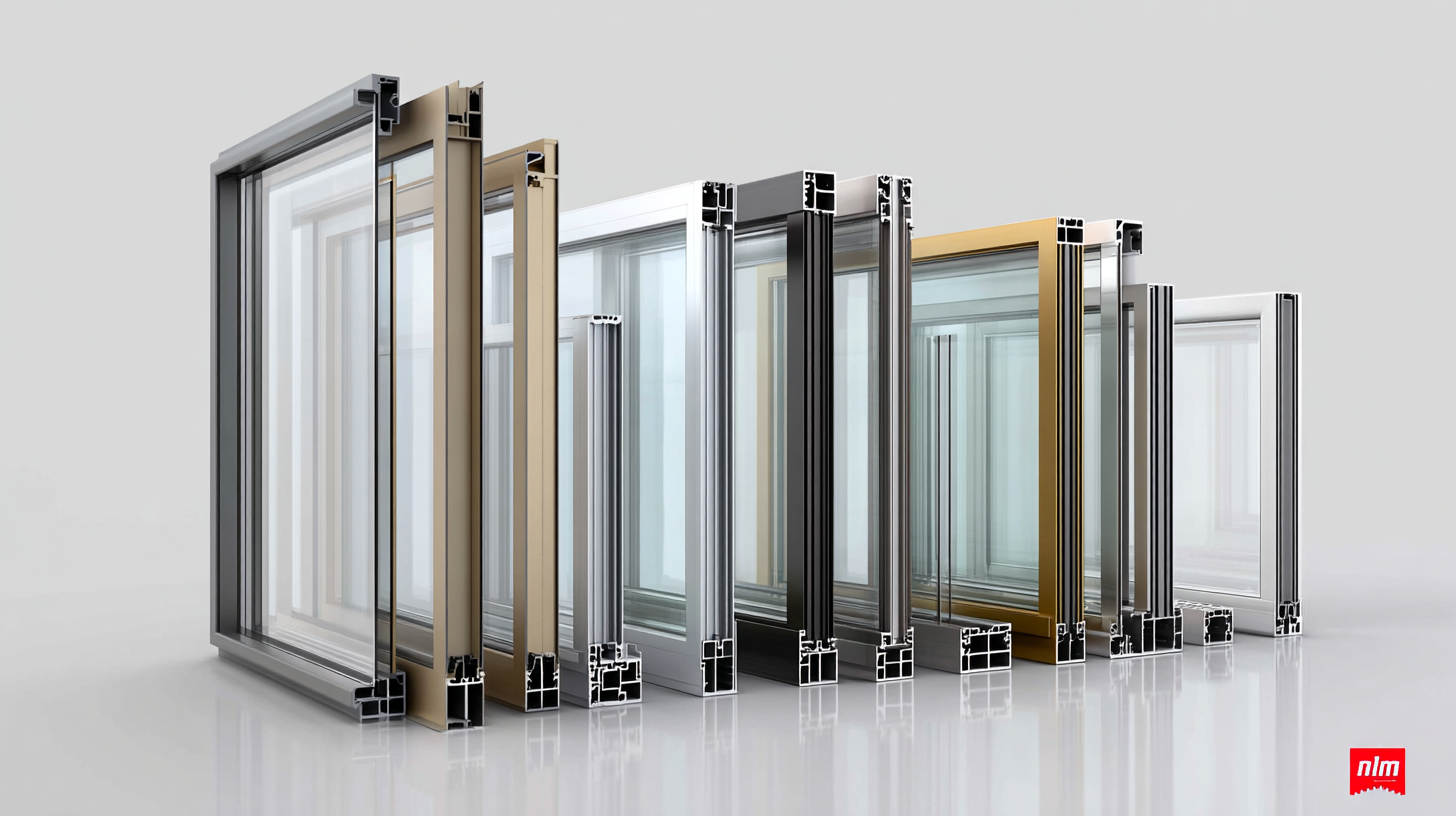
- English
- Español
- Português
- русский
- Français
- 日本語
- Deutsch
- tiếng Việt
- Italiano
- Nederlands
- ภาษาไทย
- Polski
- 한국어
- Svenska
- magyar
- Malay
- বাংলা ভাষার
- Dansk
- Suomi
- हिन्दी
- Pilipino
- Türkçe
- Gaeilge
- العربية
- Indonesia
- Norsk
- تمل
- český
- ελληνικά
- український
- Javanese
- فارسی
- தமிழ்
- తెలుగు
- नेपाली
- Burmese
- български
- ລາວ
- Latine
- Қазақша
- Euskal
- Azərbaycan
- Slovenský jazyk
- Македонски
- Lietuvos
- Eesti Keel
- Română
- Slovenski

What are the Benefits of Best Aluminum Windows for Modern Construction
In the ever-evolving landscape of modern construction, the choice of materials can significantly impact not only the aesthetic appeal but also the overall performance and sustainability of buildings. Among the myriad options available, Aluminum Windows have emerged as a leading choice for architects and builders alike.

According to a report by Grand View Research, the global aluminum window market was valued at approximately $18 billion in 2020 and is projected to grow at a CAGR of around 5% from 2021 to 2028, highlighting the increasing demand for energy-efficient and durable window solutions.
The intrinsic properties of aluminum, including its lightweight nature, resistance to corrosion, and versatility in design, make it an ideal material for contemporary architectural applications. As the construction industry continues to prioritize sustainability, incorporating aluminum windows not only enhances structural integrity but also contributes to energy conservation efforts, all while maintaining an attractive and modern aesthetic.
Advantages of Aluminum Windows in Contemporary Architecture
Aluminum windows have increasingly become a popular choice in contemporary architecture, offering a multitude of advantages that align with the demands of modern construction. One of the key benefits is their durability; according to the Aluminum Association, aluminum windows can last up to 40 years with minimal maintenance. This makes them a cost-effective option in the long run, as they resist rot, rust, and corrosion better than many traditional materials.
Moreover, aluminum windows provide design versatility, allowing architects to create sleek, expansive glass facades that maximize natural light. A report by the World Green Building Council found that buildings designed with large window openings can reduce energy consumption by up to 30%. This is crucial for modern eco-friendly designs, as it enhances daylighting while minimizing reliance on artificial lighting. Additionally, advancements in thermal break technology have improved energy efficiency, ensuring that aluminum windows can meet stringent performance standards in today's market.
With a variety of finishes available, aluminum windows can be customized to fit various architectural styles, enhancing both aesthetics and functionality. As the construction industry continues to prioritize sustainability, the demand for aluminum windows is projected to increase, further cementing their role in contemporary architecture.
Energy Efficiency: How Aluminum Windows Contribute to Sustainability
Aluminum windows have become a popular choice in modern construction, primarily due to their impressive energy efficiency and sustainability benefits. According to the U.S. Department of Energy, high-performance aluminum windows can reduce energy costs by up to 15%, which not only contributes to lower utility bills but also minimizes the carbon footprint of buildings. The use of thermal breaks and advanced glazing technologies in aluminum windows greatly enhances their insulation properties, effectively keeping indoor temperatures stable and reducing reliance on heating and cooling systems.
**Tips:** When selecting aluminum windows, consider those with a low U-value, which indicates better insulation performance. Look for windows certified by organizations such as ENERGY STAR, as these have been tested for energy efficiency and can significantly enhance the sustainability of your construction project.
Moreover, aluminum is highly recyclable, with studies showing that recycling aluminum requires 95% less energy compared to creating new aluminum from raw materials. This means installing aluminum windows not only saves energy during their lifespan but also contributes to a circular economy by reducing waste. Engaging in these sustainable practices is crucial as the construction industry seeks to meet global environmental standards and reduce its ecological impact.
**Tips:** Ensure to check the lifecycle analysis of the products you choose, as this can give you insights into the overall environmental impact of your window solution, including recycling options available at the end of their lifespan.

Design Flexibility: Customization Options for Modern Aesthetics
Aluminum windows are becoming increasingly popular in modern construction due to their inherent design flexibility, allowing architects and builders to tailor aesthetic solutions to meet contemporary needs. According to a report by the American Institute of Architects, 78% of architects prefer using aluminum for its ability to create large, unobstructed views while maintaining thermal efficiency. This is crucial for modern designs that prioritize natural light and open spaces.
Customization options abound with aluminum windows, enabling a range of styles, colors, and finishes to complement any architectural vision. Manufacturers now offer powder-coated finishes in thousands of colors, as noted in a recent industry survey, giving clients the freedom to match their windows to any design concept. Larger frame structures can also support oversized glazing, which is increasingly in demand for modern homes, resulting in striking visual appeal.
**Tip:** When choosing aluminum windows, consider energy efficiency ratings and certifications, such as ENERGY STAR, which can improve home comfort and reduce energy bills.
**Tip:** Additionally, explore hybrid designs that combine aluminum with materials like wood for enhanced aesthetics and insulation properties, catering to a variety of design preferences. This blend can enhance both form and functionality in modern constructions.
What are the Benefits of Best Aluminum Windows for Modern Construction - Design Flexibility: Customization Options for Modern Aesthetics
| Feature | Description | Benefits | Customization Options |
|---|---|---|---|
| Material Durability | Aluminum is resistant to corrosion, weather, and UV rays. | Longevity and reduced maintenance costs. | Available in various finishes and colors. |
| Design Versatility | Can be shaped and molded into various designs. | Accommodates unique architectural styles. | Customization in frame profiles and sizes. |
| Energy Efficiency | Insulated aluminum windows reduce heat transfer. | Lower energy bills and improved comfort. | Various glazing options for optimal performance. |
| Sustainability | Aluminum is recyclable without degradation of quality. | Support for green building practices. | Can be produced using eco-friendly coatings. |
| Security Features | Strong frames and advanced locking mechanisms. | Enhanced safety for occupants. | Options for reinforced glass and hardware. |
Durability and Maintenance: Long-lasting Benefits of Aluminum Frames
 Aluminum windows are increasingly favored in modern construction due to their exceptional durability and low maintenance requirements. According to a report by the American Institute of Architects, buildings constructed with aluminum frames can last up to 30% longer than those using traditional materials like wood or vinyl. The inherent resistance of aluminum to corrosion, warping, and fading makes it an ideal choice for various climates, allowing homeowners to enjoy aesthetics without compromising functionality.
Aluminum windows are increasingly favored in modern construction due to their exceptional durability and low maintenance requirements. According to a report by the American Institute of Architects, buildings constructed with aluminum frames can last up to 30% longer than those using traditional materials like wood or vinyl. The inherent resistance of aluminum to corrosion, warping, and fading makes it an ideal choice for various climates, allowing homeowners to enjoy aesthetics without compromising functionality.
Moreover, maintenance for aluminum windows is minimal. They only require occasional cleaning with soap and water to maintain their appearance, as their robust finish is resistant to peeling and chipping. A study by the U.S. Department of Energy revealed that energy-efficient aluminum windows can significantly reduce heating and cooling costs by up to 25%, showcasing their long-lasting benefits not just structurally, but economically as well. With a wider range of finishes and colors available, modern aluminum frames also allow for greater design flexibility without the extensive upkeep associated with other materials.
Cost-Effectiveness: The Economic Advantages of Choosing Aluminum Windows
Aluminum windows stand out in modern construction for their remarkable cost-effectiveness, making them a popular choice among architects and builders alike. A study from the Aluminum Association reveals that aluminum's lightweight nature significantly reduces transportation and installation costs by up to 20% compared to heavier materials. This not only streamlines the construction process but also lowers labor expenses, ultimately improving the project’s bottom line.
In addition to reduced initial costs, aluminum windows offer long-term economic advantages through their durability and low maintenance requirements. According to a report by the National Association of Home Builders, aluminum windows have an average lifespan of 30 years, making them a wise investment for property owners. They resist the corrosive effects of weather and require minimal upkeep, saving homeowners on repair and replacement expenses. With energy-efficient options available, aluminum windows can also reduce heating and cooling costs by up to 40%, providing an attractive return on investment for modern construction projects.